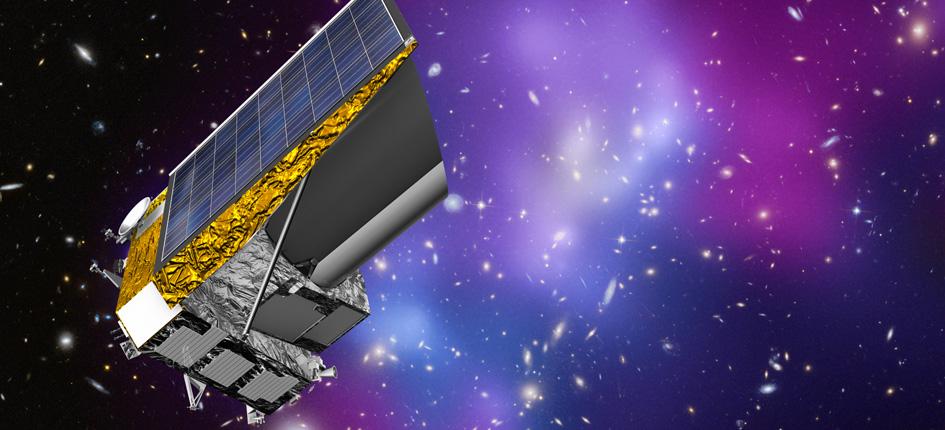Researchers from the University of Zurich (UZH) are contributing to the scientific preparation and evaluation of the Euclid space mission led by the European Space Agency (ESA). On July 1, the space telescope is set to be launched into outer space from Cape Canaveral in the USA.
The mission’s aim is to record the large-scale arrangement of galaxies up to 10 billion light years away from the Earth in a 3D map, further details of which can be found in a press release issued by UZH. With this unique mapping of the structure of the cosmos, researchers hope to discover more about the nature of dark matter and dark energy as well as the laws of gravity.
“Dark matter is matter that does not emit, absorb or reflect light”, explains Francesca Lepori, cosmologist at the Center for Theoretical Astrophysics and Cosmology at UZH, in the press release. This invisible mass is difficult for researchers to study, although it would seem clear that there must be something else there. After all, the observed arrangement of galaxies cannot be explained by general relativity “unless there is more mass than we can see”, Lepori concludes.
In addition to Lepori, nine further UZH researchers are involved in the scientific evaluation of the space mission. The simulation carried out by UZH computer cosmologist Joachim Stadel and the high-performance computing specialist Doug Potter maps all of the galaxies that Euclid is able to observe. The astrophysicist Aurel Schneider is running through different dark matter scenarios and investigating what effects they have on cosmological observations. Further contributions to the Euclid Consortium are provided by UZH researchers Giovanni Aricó, Jeppe Mosgaard Dakin, Sebastian Schulz, Jozef Bucko and Jaiyul Yoo.







